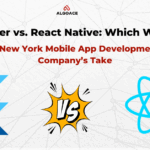
In the continuously changing digital environment, the parameters of marketing innovation are perpetually being reshaped. Envision a social media marketing agency utilizing Brain-Computer Interfaces (BCIs) to acquire exceptional marketing insights. What was once perceived as a concept from the future is swiftly transforming into a feasible reality, driven by progress in neuroscience and technology. This blog delves into the intriguing notion of employing BCIs in marketing, examining its possible applications, advantages, ethical considerations, and connections with other sectors, including premier custom website development services and software development company.
What Are Brain-Computer Interfaces (BCIs)?
Brain-computer interfaces (BCIs) represent sophisticated systems that facilitate direct interaction between the human brain and external devices. By decoding neural signals, BCIs empower users to manipulate technology or engage with digital platforms without the need for physical input. This emerging technology has the potential to significantly impact UI/UX design services by enabling designers to create more intuitive, responsive, and personalized digital experiences based on users’ neural feedback. In parallel, logo design services can benefit from BCIs by understanding how users emotionally react to different design elements, allowing for the creation of logos that resonate more deeply with the target audience on a subconscious level.
A Brief Overview of BCIs
Brain-computer interfaces (BCIs) are systems designed to facilitate direct interaction between an individual’s brain and external devices. These interfaces are capable of capturing brain signals, analyzing them, and converting these signals into commands for a range of applications.
The Evolution of BCIs
Brain-computer interfaces (BCIs) were created for medical applications, particularly to assist individuals with disabilities. Currently, the use of these interfaces is being investigated in various sectors, including gaming, military operations, and, more recently, marketing.
How a Social Media Marketing Agency Could Use BCIs
Envision a scenario in which social media marketing agencies utilize brain-computer interfaces (BCIs) to gain direct insights into the human brain, thereby comprehending consumer emotions, preferences, and decision-making mechanisms. This advanced technology has the potential to transform audience engagement and develop exceptionally personalized marketing strategies in unprecedented ways.
Enhanced Consumer Behavior Analysis
Traditional marketing methods depend on surveys, focus groups, and user engagement metrics to gain insights into consumer behavior. Brain-computer interfaces (BCIs) have the potential to transform this approach by offering immediate insights into users’ emotional and cognitive reactions to advertisements, content, and overall user experiences.
Hyper-Personalized Marketing Campaigns
By interpreting brain signals, a social media marketing agency could pinpoint specific content that resonates with individual users, facilitating highly personalized marketing campaigns. This degree of customization could lead to a notable increase in engagement rates.
Real-Time Feedback for Content Optimization
Envision the possibility of launching an advertisement and receiving instant feedback regarding its effectiveness, derived from the neural responses of the audience. BCIs could enable real-time optimization of content, thereby enhancing the performance of marketing campaigns.
The Intersection of BCIs and Website Development
The convergence of brain-computer interfaces (BCIs) and web development signifies a revolutionary advancement in digital innovation. Utilizing neural technology, developers are now able to design exceptionally intuitive web experiences, tailored to individual users, and focused on enhancing accessibility in unprecedented ways.
User-Centric Web Experiences
A software development comapany that focuses on high-quality custom website development services could leverage BCI data to design websites centered around user experience. Gaining insights into user interactions with website elements at a neural level would facilitate the creation of a smooth and intuitive user interface.
Enhancing E-Commerce Platforms
Insights derived from BCI technology have the potential to transform e-commerce platforms. For example, by examining brain activity, a social media marketing agency could identify which product arrangements, color schemes, and designs resonate most effectively with users.
Potential Benefits of Using BCIs in Marketing
Brain-computer interfaces (BCIs) present a revolutionary opportunity for marketing by granting direct access to consumer thoughts and emotions. This technology has the potential to empower businesses to develop highly personalized campaigns and significantly improve customer engagement.
Unparalleled Accuracy
In contrast to conventional approaches that depend on self-reported information, BCIs allow for direct insight into users’ subconscious preferences and feelings, resulting in more precise data.
Increased ROI
By utilizing neural data to inform targeted campaigns, businesses can anticipate improved conversion rates and enhanced returns on investment.
Pioneering Innovation
Organizations that embrace BCIs at an early stage will establish themselves as pioneers, thereby securing a competitive advantage in the marketplace.
Ethical Concerns Surrounding BCIs in Marketing
The advantages are considerable; however, the implementation of brain-computer interfaces presents a variety of ethical dilemmas:
1. Data Privacy Issues
Neural data possesses a significant degree of sensitivity. It is of utmost importance to ensure that this data is stored securely and protected from misuse.
2. Informed Consent
How can individuals provide informed consent when they may not completely grasp the consequences of disclosing their neural data?
3. Manipulation Risks
There exists a delicate balance between comprehending consumer behavior and exploiting it. Marketers must exercise caution to uphold trust and adhere to ethical principles.
Challenges of Implementing BCIs in Marketing
The integration of Brain-Computer Interfaces (BCIs) into marketing poses considerable challenges, notably ethical dilemmas and privacy concerns related to the acquisition of neural data. Furthermore, the intricate nature of the technology and its substantial costs could impede its broad acceptance among marketing company.
1. High Costs
The development and implementation of brain-computer interface (BCI) technology remains costly, limiting its accessibility primarily to major corporations and elite agencies.
2. Technological Limitations
Although there have been significant advancements, BCIs are still in the early stages of development and may not yet provide the necessary precision for successful marketing applications.
3. User Acceptance
Encouraging users to embrace BCIs for marketing initiatives will pose a challenge, as many individuals may perceive this technology as intrusive.
Collaboration Opportunities
Collaboration opportunities open the door to innovative partnerships that can drive growth and creativity. By working together, businesses can leverage each other’s strengths, creating synergies that lead to shared success.
BCIs and Software Development Companies
A software development company could significantly contribute to the development of platforms and algorithms designed to process and analyze neural data obtained from brain-computer interfaces (BCIs).
BCIs and Custom Website Development
Agencies that provide high-quality custom website development services can enhance their offerings by incorporating brain-computer interfaces (BCIs), enabling the creation of websites that adapt in real time to users’ emotional conditions, thus delivering exceptional digital experiences.
Future Implications
The landscape of social media marketing may undergo a significant transformation through the incorporation of brain-computer interfaces (BCIs), which would provide agencies with direct access to the thoughts and emotions of consumers. This groundbreaking technology has the potential to revolutionize the methods by which insights are collected, leading to the development of more tailored and impactful marketing strategies.
Revolutionizing Social Media Platforms
Brain-computer interfaces (BCIs) have the potential to revolutionize user interactions with social media. Envision platforms that modify content dynamically according to the user’s emotional state or cognitive involvement.
Redefining Digital Marketing Standards
The incorporation of BCIs is set to elevate marketing standards, compelling agencies to embrace more sophisticated and ethical methodologies.
Bridging Marketing and Neuroscience
A partnership among marketing professionals, neuroscientists, and software developers will give rise to a novel interdisciplinary domain dedicated to comprehending and utilizing human behavior at a neural level.
Conclusion
The concept of a social media marketing agency utilizing Brain-Computer Interfaces (BCIs) for marketing insights may appear to be a notion derived from science fiction; however, it is increasingly becoming a feasible reality. By delivering real-time, highly personalized insights, BCIs possess the potential to transform the marketing landscape.
Nonetheless, this technological progress is accompanied by various challenges, such as significant costs, ethical considerations, and privacy concerns. As BCIs gain wider acceptance, it will be crucial for collaboration between software development company and agencies specializing in high-quality custom website development to create solutions that are both innovative and ethically sound.
The future of marketing is undoubtedly thrilling, and BCIs could represent a significant advancement in comprehending and shaping consumer behavior. In the interim, agencies must equip themselves to adopt this revolutionary technology responsibly and ethically.





0 Comments